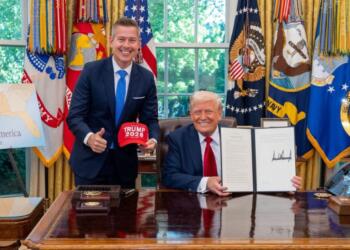
The electric transition is no longer an option given the commitments that countries have adopted to minimize their emissions of polluting gases .
Rubén Rock, CEO of Greenspace E-Mobility , a company that seeks to accelerate the electrification of Mexico and Latin America , highlighted in the panel Challenges and solutions for sustainable and impactful electrification in Mexico , that the peak of emissions will be reached in 2028, in where the transportation sector generates around 24% of emissions , so it is imperative to take action.
“Electrification is going to totally change the energy landscape, the transportation landscape, the innovation landscape. “Electrification promises to accelerate the way we manage energy and we hope that by 2030-2050 the world will be totally different to how we know it today,” he said.
However, despite this need, Mexico continues to have areas of opportunity that do not allow progress at the pace at which new clean transportation options should be adopted.
An example, said Erica Valencia, founder and director of Ectagono and who is part of the Steering Committee of the Economic and Environmental Council of Mexico City, is the lack of clean energy in the country , despite the fact that progress has been made in the generation of electrical energy from renewable sources, especially through wind and solar, it cannot be ensured that the energy with which an electric vehicle is charged is clean.
“The issue is, but I’m still polluting, right? Right now the source with which I charge my car is really not renewable and it is a question that is constantly being asked,” she said.
Israel Hurtado, president of the Mexican Hydrogen Association (H2 México) , added that around 80% of the electricity generated in Mexico is with fossil fuels , in addition to the fact that the country does not have a national electric mobility strategy.
Likewise, he indicated that the use of other alternative fuels has not been studied, just as hydrogen needs to be explored within electric mobility.
Israel Hurtado added that the challenges in terms of hydrogen are even deeper, since it is a relatively new technology, the production of green hydrogen needs to be encouraged, and in terms of charging infrastructure for hydrogen vehicles, Mexico is even further behind. .
For his part, Manuel Montes Bertin , senior director of Compliance and Regulatory Affairs at DHL Express , indicated that the German company sees its commitment to sustainability from four main pillars : airplanes with alternative fuels, clean buildings, vehicles and that its employees are committed to not polluting.
He added that, for example, in the next two years DHL will launch the first electric plane in the United States for cargo.
The specialists concluded that there must be collaboration between the different public and private actors to accelerate the process, so dialogue must be encouraged about what is slowing down the process.
“One of the main points is public-private collaboration. In how a complement is generated, because what I have also perceived from working with companies is that they have even begun to question withdrawing their fleets or the electricity supply precisely due to a lack of infrastructure or a lack of adoption by the public. before civil society,” said Erica Valencia.
















